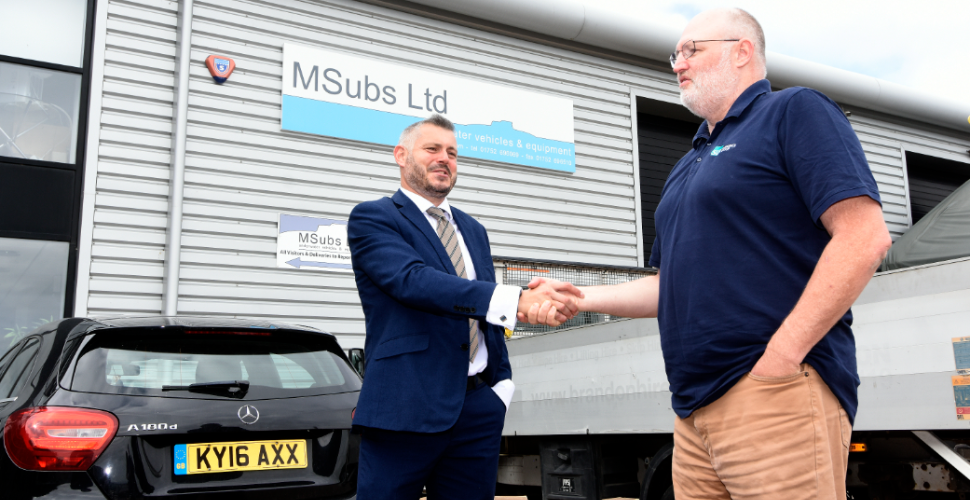Council leader Richard Bingley visited MSubs to congratulate director Brett Phaneuf on his phenomenal achievement of creating the first autonomous vessel to cross the Atlantic.
The Mayflower Autonomous Ship (MAS400) was the world's first full-sized, fully autonomous, unmanned ship to cross the ocean to a rapturous reception in the States.
The revolutionary vessel set sail from Plymouth UK at the end of April and arrived at Plymouth Massachusetts – via a pit stop in Halifax in Nova Scotia – earlier this month.
The voyage attracted massive media attention around the world with the project’s media partner IBM saying it was their most successful project, reaching nearly two billion people.
Council Leader Richard Bingley said: “I wanted to personally thank Brett and his team for everything they have done to push the frontiers of marine technology and put Plymouth on the map as a place where extraordinary projects like this can develop.
“Their passion and determination to deliver this exceptional project, is inspiring on so many levels. It’s about having a vision, making something extraordinary happen using the latest innovation, research and development
“MSubs are the epitomy of a company with highly-skilled employees who are pioneering in their field. They are cementing Plymouth’s reputation as a city at the forefront of UK’s marine autonomy.”
MSubs Ltd are is part of the Submergence Group, an advanced maritime research and development company based in Estover.
The company currently employs around 80 highly-skilled staff. They design, manufacture and assemble unmanned and manned submersibles for both military and commercial markets.
There is also a daughter company, Marine AI, based at Turnchapel. It currently has 12 employees and is looking to reach up to 50 employees in next two years.
The Mayflower Autonomous Ship's transatlantic voyage will inform further research and development of future research vessels and it is hoped that the MAS will become a recognised research platform to conduct future experiments in conditions that would be unsafe or difficult for humans.
MSubs has also been working with the Council, the University of Plymouth as part of the city’s Preventing Plastic Pollution project, trialling Waste Sharks in the Cattewater.
The Remote Operated Vehicles that normally survey the surface of our seas, have been deployed to gobble up marine litter. MSubs and Marine AI are look at adapting and enhancing the technology of the basic Waste Sharks to work autonomously moving around the water to where the plastic waste is collecting.
Plymouth has, for centuries, been at the heart of oceanic developments and is already a key player in the world of marine technology.
It is a global centre of excellence for marine science and technology with one of the largest clusters of expertise in Europe. This extends across marine technology, renewables, cruise and leisure marine to boatbuilding, shipping and marine engineering.
There are currently employ over 13,000 people deployed in the marine and defence sector in the city with the average advertised salary of £38,800 across over 320 enterprises. This sector has been identified in the city’s growth strategy as a priority sector.
